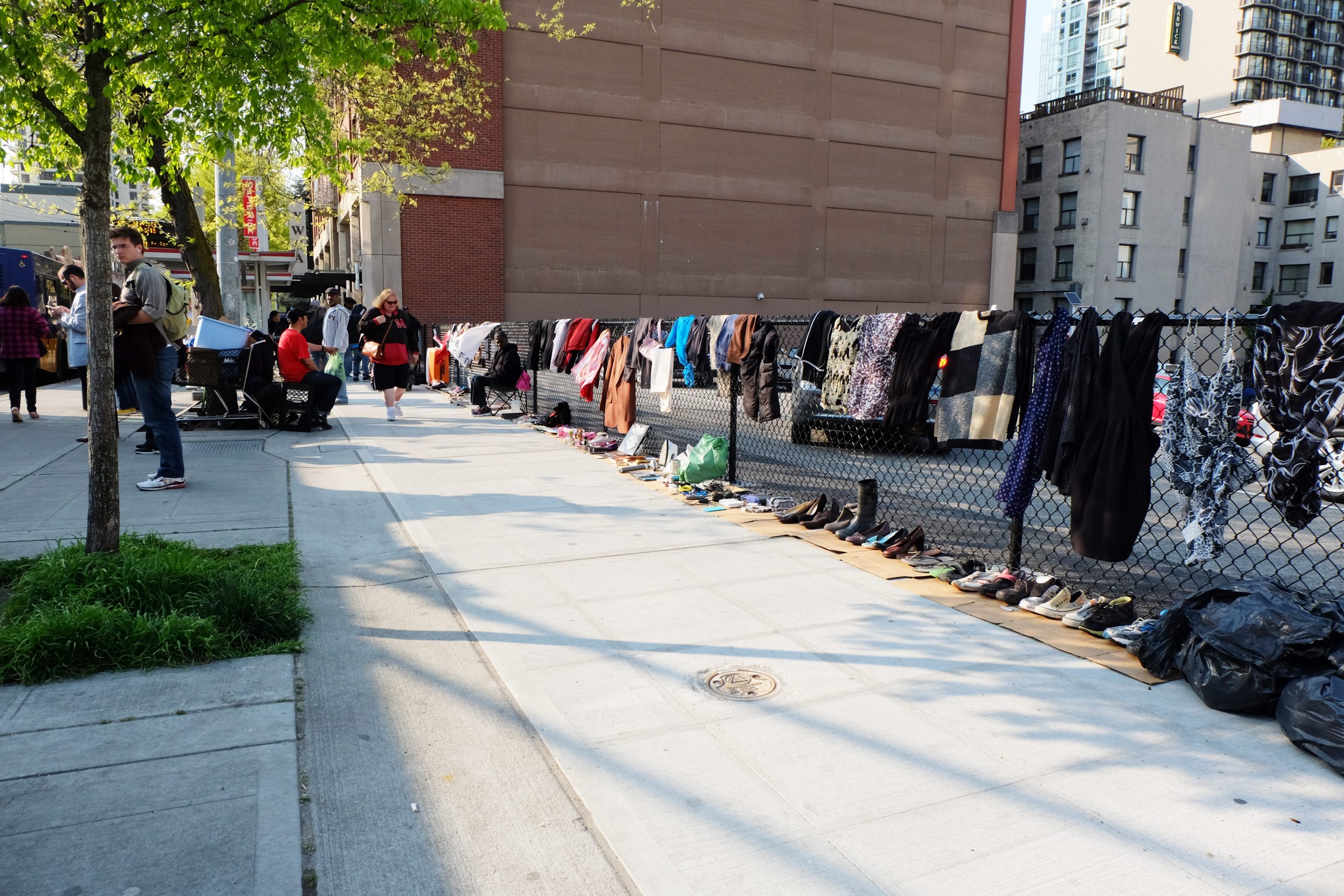News
GeekWire: Seattle business leaders request ‘immediate action’ from the city to improve safety in downtown
Posted on

This story was originally published by GeekWire on Oct. 7, 2021.
By Mike Lewis
In a sharply worded letter to Seattle and King County councils, members of the Downtown Seattle Association said the neighborhood is in crisis from crime and homelessness and that people should expect more businesses to move or close unless measures are taken soon.
The letter, signed by DSA CEO Jon Scholes along with representatives from Amazon, Vulcan, Weyerhaeuser, downtown law firms, the Seattle Kraken and others, includes a laundry list of complaints, crime story citations and grim statistics that the letter describes collectively as a “threat to recovery and the lives of people in need.”
“There has been a significant increase in violent crime in downtown Seattle since 2015. SPD, already understaffed for a city the size of Seattle, has lost nearly 300 officers since early 2020,” the letter states, adding that businesses have begun to hire off-duty cops for protection.
“Property crime and shoplifting are having a major impact on many downtown retailers, restaurants and attractions. Retailers, arts and cultural venues and other businesses are spending sizable resources on private security to compensate for a lack of police and the absence of other public safety and health responses,” the letter continued.
Warning that pandemic-related downtown business closures — already at 500 shuttered, according to the DSA — will continue to increase, the business group asked that city and county take the following actions:
- That the council and the mayor’s office adopt proposed public safety and housing investments in the proposed 2022 budget to increase police staffing, build new housing and shelter, expand the Health One program and increase the number of Community Service Officers.
- That the council and the mayor’s office adopt recommendations of the 2019 High Barrier Work Group, which was jointly convened to address individuals with significant and repeated interactions with the criminal legal and emergency response systems.
- That the council and the mayor’s office help offset new security-related expenses being incurred by small businesses, retailers and arts and cultural venues due to reduced SPD staffing and increased response times.
The letter comes as questions swirl about the future of downtown’s status as a business district, where Amazon and other tech companies are based. The area was largely deserted when companies sent employees home at the outset of the pandemic. Some companies are now looking to reduce their physical office footprint with the shift to remote work.
The majority of Seattle tech workers don’t expect to ever return to their offices full time, according to a recent survey from Sea.Citi.
Seattle mayoral candidate and former council president Bruce Harrell said the problems in downtown are critical.
“As I detailed in Pioneer Square last week alongside firefighters, small business owners and civil rights leaders, the current state of public safety downtown and in every Seattle neighborhood is unacceptable,” he said.
“I’ve made visiting with neighbors and small businesses in our downtown neighborhoods a priority. I’ve seen firsthand the very real need for urgent action to ensure public safety, compassionately address homelessness, and revitalize this integral part of our city.”
For people who work in downtown, where the crime and homelessness issues are acute, help can’t come soon enough.
Lou Bond, the general manager of the Melbourne, a 10-story office building on 3rd Avenue and Pike Street, said the downtown area has always had its share of crime but since 2019, “it’s gotten substantially worse.”
Bond has worked as general manager of the building since 1987. Last year, the crime situation had gotten so out of hand that he organized the managers of eight nearby buildings to hire off-duty police to patrol the area between 11 a.m. and 8 p.m. at a cost of $35,000 a month.
He blames rampant drug addiction and untreated mental health issues coupled with fewer police and a civic disinclination to prosecute some crimes for the neighborhood’s decline. So for him, signing the letter was an easy decision.
But, he added, he is hopeful that the letter will get the city’s attention and prompt change. He called himself a “glass is half-full” kind of guy. One of the real problems, he said, is the city’s inaction in the face of significant problems. Civic inaction regarding the addicted and those suffering from mental illness is not compassion, he said.
“We have to help them,” he said. “They are our brothers and sisters.”
The building Bond manages — as is the case with the rest of downtown — sits squarely in Seattle city council member Andrew Lewis’ District 7. Lewis generally agrees with the business leaders’ letter although, he added, some of funding requests are already part of the budget.
But, he added, the timing of the letter is good. “We are entering the budget process so it might help tailor some of the funding,” he said. “There is a lot of more work to do with the public safety challenges.”
Lisa Herbold, who represents West Seattle, agreed. She said funding more police officers is a must. Currently, the city is nearly 300 officers below its 2019 level of staffing.
“I can confirm that I will be looking to support funding to expand the CSO program, Health One, a Victim Compensation fund, and funding to support (Seattle Police Department’s) 2022 hiring plan that – in a best case recruitment scenario – would result in a sworn force of 1,230.”